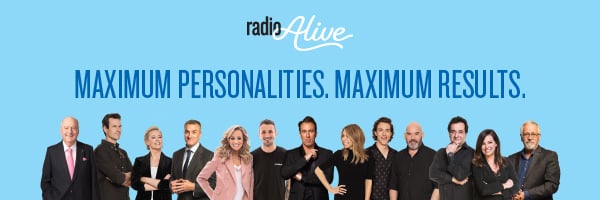Radio Tomorrow with James Cridland
I’ve just been to Radiodays Europe in Lausanne, Switzerland. It’s the highlight of my radio conference year: over 2,500 people highlighting the very best of radio across Europe and beyond.
This year, I detected a change.
Darren Davis from iHeartRadio, the US commercial radio company, gave a confident performance. Accompanied by lots of slides, he told us how radio was thriving, and how iHeart was number one, and radio was doing really well, and here’s another slide showing iHeart was number one, and another one, and another.
And the public service broadcasters of Europe were also speaking. They had a very different tune. Reeling from cuts in funding and concerned about the rise of fake news and disinformation, many painted a far bleaker picture. There was anger at a common enemy. And, for the public service broadcasters, that common enemy was Google, Facebook and Twitter.
Radio has historically made all its content freely available, using the open and distributed nature of podcasting, and radio directories like TuneIn and others. Yet, the new people in charge of radio in many of the public service broadcasters have come from TV – where none of this has happened. Instead, television has always been locked away on broadcasters’ own apps, and tightly controlled. Mostly, this has been for rights reasons, but this is now seen as a strategy to follow.
The BBC’s announcement that they’d pulled away from Google Podcasts is seen as validation of this strategy. Another public service broadcaster told me that their long term plan is to remove all their podcasts from Apple, all their streams from TuneIn and other places, and be in control of their distribution, through their own app.
“The old radio people have done this wrong,” I was told. “We should stop giving our stuff away.”
I couldn’t disagree more. We are in the business of producing content. We should fish where the fish are: and make sure that our content is where audiences are. But then I reflected that, after 30 years in the industry, perhaps I’m an old radio person doing this wrong.
After a few more graphs showing iHeartRadio at #1 in something or other, Darren Davis outlined iHeart Radio’s strategy: “Be everywhere our consumers are: with the services and the products they expect”
But increasingly, European public service radio’s strategy is to withdraw into their own walled garden. They should be very cautious that this doesn’t mean a slide into irrelevance.
About The Author
James Cridland, the radio futurologist, is a conference speaker, writer and consultant. He runs the media information website media.info and helps organise the yearly Next Radio conference. He also publishes podnews.net, a daily briefing on podcasting and on-demand, and writes a weekly international radio trends newsletter, at james.crid.land.
Contact James at [email protected] or @jamescridland


